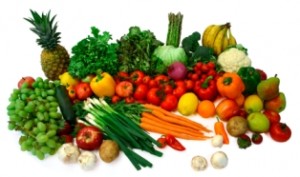Vitamins and Minerals Batter Bladder Cancer
Study: High Vitamin, Mineral Intake Associated with Decreased Bladder Cancer Risk
When it comes to bladder cancer, men are three times more likely to develop it than women. One way to decrease this risk is to do the very thing that your parents told you to do since you were a youngin’: Eat your vegetables.
Now, if you were anything like me when you were young, you didn’t give two hoots about vitamins and minerals. All you cared about was when you could be dismissed from the table so you could go back out and play.
But now that you’re older—and hopefully a bit wiser—you’re taking advantage of the things you didn’t fully appreciate when you were a young whippersnapper. You’re eating better, trying to get as much exercise as possible, and doing you’re darndest to avoid devastating diseases. And as researchers from Australia have found, you’re decreasing your risk for bladder cancer by eating right.
Researchers from the Cancer Council Victoria in Australia reviewed the eating habits of about 565 people, approximately half of whom had previously been diagnosed with bladder cancer. The remaining participants were healthy adults that served as controls.
These healthy controls had a lot in common, though. Besides being the only ones in the study without bladder cancer, they were also considerably higher in specific nutrients. And these nutrients were associated with a protection from bladder cancer.
For example, blood work analysis found that the people that had the highest concentrations of vitamin E were 34 percent less likely to develop bladder cancer. But that was nothing compared to people who had high concentrations of phosphorus. For them, the bladder cancer risk was reduced by 51 percent!
Other vitamins and minerals that had protective properties included vitamin D, niacin, and carotenoids. Carotenoids are naturally occurring pigments found in brightly colored fresh fruits and veggies. They’re a form of vitamin A.
The study was published in the journal Cancer Causes and Control and was funded in part by the National Institute of Environmental Health Sciences and the National Cancer Institute at the US National Institutes of Health.
Fortunately, these vitamins and minerals (with the exception of vitamin D) aren’t hard to find in the food supply. But if you’re looking for a specific vegetables for specific minerals and vitamins:
Phosphorus sources: Chickpeas, lentils, garlic, soybeans
Vitamin E sources: Spinach, broccoli, wheat germ
Niacin sources: crimini mushrooms, asparagus, romaine lettuce
Sources:
naturodoc.com
nutraingredients.com
ods.od.nih.gov
whfoods.org
Related Posts
- With Bladder Cancer Treatment, Less Is More
- Research Shows Spinach Can Help Prevent Ovarian Cancer
- Vitamin C as a Safer Cancer Cure
- Throat Cancer and its Link to Refined Carbohydrates
- Prevent Premature Aging with Daily Vitamins
 
|
Enjoy this article? We guarantee your privacy. Your email address will NEVER be rented, traded or sold. |
Visit my new site: Self Help On The Web
 |
 |
Posted: January 18th, 2010 under Cancer, Minerals, Vitamins.
Tags: bladder cancer, cancer prevention, vitamin and mineral, vitamins and minerals







